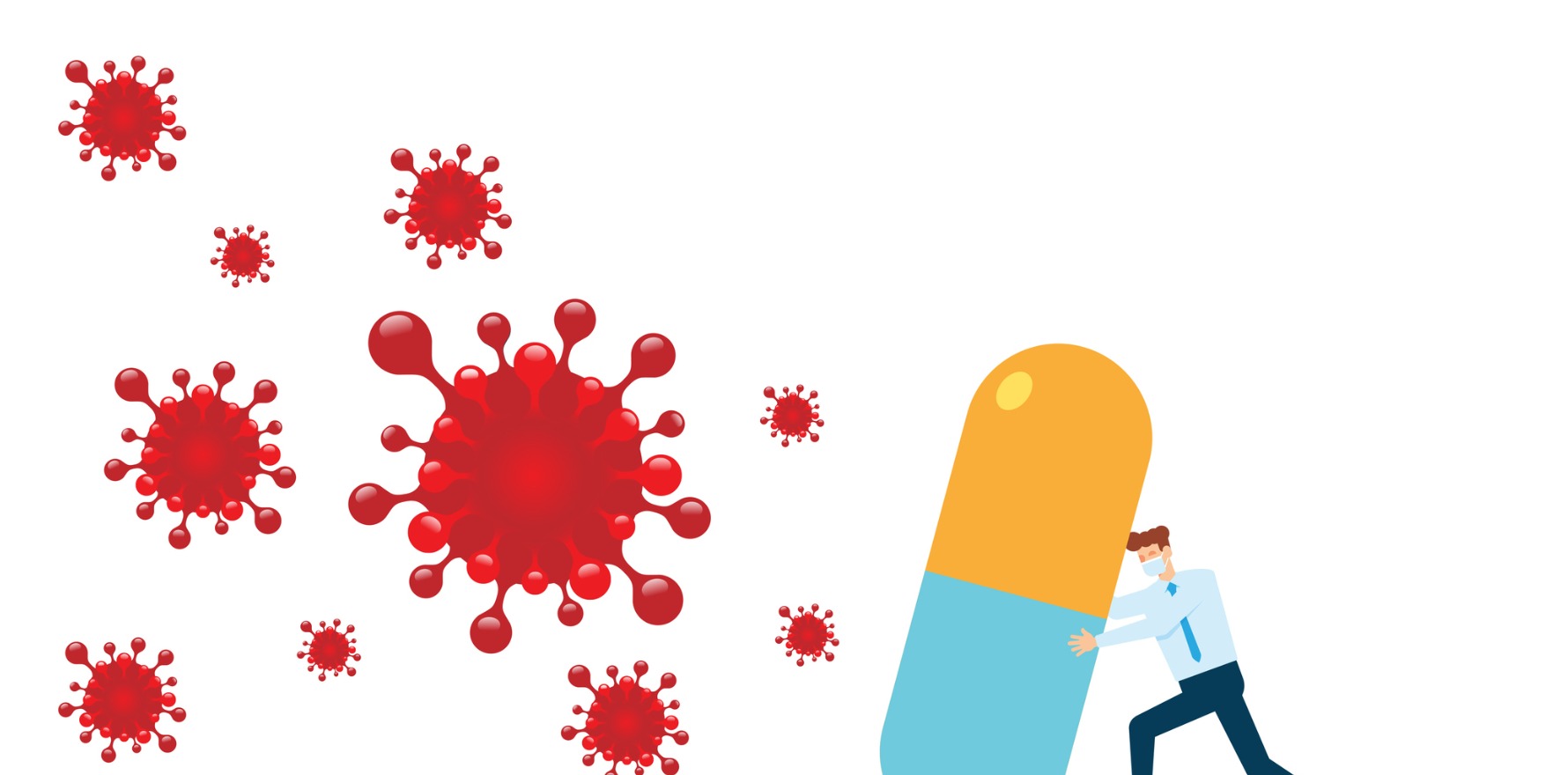The newly approved pills are welcome but they’re not for everyone, nor can they replace vaccines and boosters.
The impending arrival of Australia’s first two approved oral medicines to treat covid patients at risk of serious illness adds another weapon to doctors’ growing war chest – but they are not for everyone and nor are they a substitute for vaccination and boosters.
They’ll also cost the taxpayer dozens of times more per patient than the immunisation schedule, as one Adelaide researcher has shown with a simple analysis based on US pricing.
Associate Professor Andrew Rowland, Beat Cancer research fellow in clinical pharmacology at Flinders University, crunched the numbers.
The Medical Republic has asked federal Health Minister Greg Hunt’s office for the Australian comparable. [TUESDAY AM UPDATE: But the Department of Health replied that “The nature and details of agreements between the Australian Government and vaccine or covid pharmaceutical manufacturers are commercial-in-confidence.”]
Professor Rowland said that in the US, Paxlovid costs $US530 ($739) per infection, and approved monoclonal antibodies cost more than $US700 per infection, while the vaccine costs up to $US16.25 per dose.
“This means we can afford to vaccinate 32 people (children) for the cost of treating one person with Paxlovid and we can vaccinate 43 people for the cost of treating one person with monoclonal antibodies,” he said.
“While Paxlovid is another valuable asset in the fight against covid, vaccination remains our most important and cost-effective means of fighting the pandemic.”
In a press conference last week, Mr Hunt and TGA head Professor John Skerritt announced the TGA had granted provisional approval to nirmatrelvir and ritonavir (Paxlovid, Pfizer), and molnupiravir (Lagevrio, Merck Sharp & Dohme).
“These are oral antivirals, and these two new oral antivirals mean that people will be able to have a course of treatment if prescribed by a doctor,” Mr Hunt said.
“And that means that they won’t necessarily have to take them in hospitals such as the monoclonal antibodies, such as sotrovimab. It adds to our protection. And it will, in particular, focus on those that have mild to moderate symptoms but are at risk of severe disease. So most particularly, elderly Australians, especially those in aged care. And between the two, there are 800,000 courses of treatment that are on order, and we are expecting the first of these courses to arrive within the coming weeks and they will be made available through prescription by GPs or in a hospital circumstance. “
Mr Hunt said the medications would be provided without cost to the patient.
“The drugs will be free,” he said. “They’ll be available, although subject to prescription by a general practice or in the hospital environment. And if it’s your GP that’s prescribing, it will be available from pharmacists. So, simple and easy, subject to the gateway of a GP, focussing on both the need, the efficacy, and the safety elements.”
Professor Skerritt said prescribing doctors would need to be aware that both medicines were not recommended in pregnancy or breastfeeding.
“But more to the point, one of the medicines, Paxlovid, does interact with a number of other drugs,” he said.
“And so, as it is the case for all prescribing of new medicines, it will be important for the doctor to look at what other medicines the individual is on, and that will also influence the decision about whether or not they’re an appropriate candidate for which one of these particular drugs.”
Professor Rowland said prevention had been better than cure “for all infectious diseases”.
“We do not want people to feel that if they can pop a pill they do not need to be vaccinated,” he said.
“However, we realise that even some individuals, maybe because of their weaker immune response or age or whatever, may still become ill with covid if they’re vaccinated.”
Cost aside, Professor Rowland said nirmatrelvir-ritonavir was an important new treatment for covid patients as it targeted a unique process in covid replication unrelated to the spike protein, which is the target for most other covid treatments and vaccines.
“This means that Paxlovid is less likely to lose efficacy due to mutations in the spike protein, which to date have been associated with the major variants (including Delta and Omicron),” he said.
Associate Professor Jill Carr, laboratory head in microbiology and infectious diseases in the College of Medicine and Public Health at Flinders University, welcomed the two new oral treatments while also stressing that they were no replacement for vaccination.
“This is such a fantastic advancement and opportunity for effective treatments, designed and tested to specifically target SARS-CoV-2, that can be easily accessed as oral, take-home formulations,” she said.
Molnupiravir targets the machinery that replicates the viral genome, while nirmatrelvir target the viral protease that is essential for infectivity and is formulated with ritonavir, which “boosts” the therapeutic levels of the active drug.
“These drugs are best prescribed to people who have contracted SARS-CoV-2 and are at high risk of developing severe covid-19 or may have an underlying condition that may have reduced their vaccine responses” she said.
“These agents are not a replacement for vaccination. There may be initial limited supply, but the availability of these new drugs bodes well for offering clinicians treatment choices for those most at risk.
“Of note, these drugs work very well in the initial viral phase of illness – the first few days – but will be of no benefit for patients already critically ill in hospital or on a ventilator.”
Professor Andrew Rowland discloses that he has previously received investigator-initiated research grant funding from Pfizer unrelated to covid treatments





